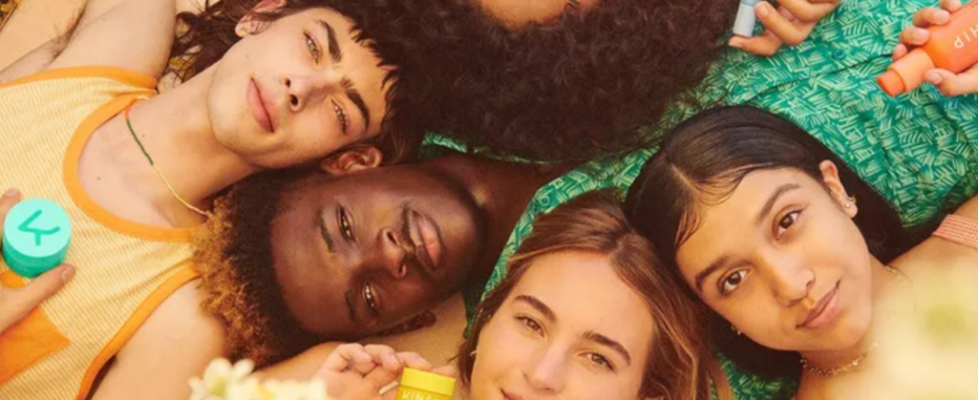People in the Cosmetics Industry
The fashion and cosmetic industries work as an institutionalized system. Sociologist Wendy Griswold’s ‘cultural diamond’ system (Fig. 1) states that the generation and culture of the people involved in production and consumption can influence the final products in the market (Pedroni, 2013 p. 14). For example, as a response to prevalent sustainability issues faced by the current generation, Gen Z, the producers are exploring ‘slow fashion’ alternatives. (Fletcher, 2010). Similarly, in the cosmetics industry, the rise of eco-conscious consumers has led brands toward green cosmetic production (Amberg & Fogarassy, 2019)

Presently, people classified by generation are shaped by common global-scale events occurring during their lifetime. Gen Z, born between 1995-2010 are usually associated with strong values concerning global issues like exclusion of diversity (McKinsey & Company, 2023). Being the first digital-native generation, they use online platforms to their maximum potential. Gen Z is conscious of the concept of self-image making it an important aspect of any online presence. Thus, social media personalities are strong influences for the generation (Weinswig, 2016).
Consequently, brands can employ certain marketing strategies that implore these qualities of Gen Z. In the wake of high competition and internal rivalry between cosmetic brands (Kumar et al, 2006), the main goal of cosmetic marketing is to stand out to the younger generations. Having a strong brand image is crucial for any newcomer in the industry. According to LVMH, Fenty Beauty by Rihanna focuses on inclusivity for all thereby making the brand values known. The brand features cosmetics that focus on hard-to-match skin tones and formulations that can be used by a variety of skin types (LVMH, 2023). Here, the brand not only stands out for having a strong public identity but also appeals to other issues that interest Gen Z, specifically inclusivity.

Gen Z usually voices their concerns through a digital platform. IT Cosmetics, a L’oreal brand, faced immense online resistance against ‘Bye Bye Foundation’ for having negligible shade ranges for individuals with different skin tones. (Parke, 2020). This form of ‘cancel culture’ creates a negative market impact for the brand. Thus, it is important for the brand to have values and products that align with this generation.

With a technologically advanced generation as a brand’s main clientele, influencer sponsorships, and e-commerce platforms become an effective marketing strategy. It has resulted in increased engagement of Gen Z consumers with brands thereby improving brand loyalty (Dogra, 2019). Thus, having the ability to communicate and form relationships with brands is a valuable skill. Moreover, familiarity with technology, cultural awareness, and an open-minded attitude would aid in creating a successful cosmetics brand that tends to Gen Z.
Reference List
- Amberg, N. and Fogarassy, C. (2019) ‘Green Consumer Behavior in the Cosmetics Market’, Resources, 8(3), p. 137. doi:10.3390/resources8030137.
- Demanding Consumer Segment’ Fung Global Retail & Technology. Available at: https://deborahweinswig.com/wp-content/uploads/2016/08/Gen-Z-Report-2016-by-Fung-Global-Retail-Tech-August-29-2016.pdf (Accessed: 13 October 2023)
- Dogra, K. (2019) The impact of influencer marketing on brand loyalty towards luxury cosmetics brands: Comparison of Generation Z and Millennial. Master’s Thesis. Modul Vienna University. Available at: https://www.modul.ac.at/uploads/files/Theses/Master/Grad_2019/Karina_Dogra_thesis.pdf (Accessed: 13 October 2023)
- Fletcher K. (2010) ‘Slow Fashion: An Invitation for Systems Change’, Fashion Practice, 2(2), 259-265, DOI: 10.2752/175693810X12774625387594 (Accessed: 12 October 2023)
- Kumar, S., Massie, C. and Dumonceaux, M.D. (2006), ‘Comparative innovative business strategies of major players in cosmetic industry’, Industrial Management & Data Systems, Vol. 106 No. 3, pp. 285-306. https://doi.org/10.1108/02635570610653461 (Accessed 12 October 2023)
- LVMH: Fenty Beauty by Rihanna (2023) Available at: lvmh.com/houses/perfumes-cosmetics/fenty-beauty-by-rihanna/ (Accessed: 13 October 2023)
- Parke, P. (2020) IT Cosmetics Receives Backlash for Non-Inclusive Foundation Range Available at: https://graziadaily.co.uk/beauty-hair/hair/it-cosmetics-foundation-backlash-diversity/ (Accessed: 12 October 2023)
- Pedroni, M. (2013). From Production to Consumption: The Cultural Industry of Fashion. Oxford: Interdisciplinary Press.
- Weisnwig, D. (2016) ‘Gen Z: Get Ready for the Most Self-Conscious,
- What is gen Z? (2023) McKinsey & Company. https://www.mckinsey.com/featured-insights/mckinsey-explainers/what-is-gen-z (Accessed 12 October 2023)
Image Reference List
- Figure 1: Fletcher K. (2010) ‘Slow Fashion: An Invitation for Systems Change’, Fashion Practice, 2(2), 259-265, DOI: 10.2752/175693810X12774625387594 (Accessed: 12 October 2023)
- Figure 2: Find your Fenty Match. Available at: https://fentybeauty.com/pages/find-your-fenty (Accessed: 14 October 2023)
- Figure 3: Mackenzie, M. (2018) ‘IT Cosmetics Is Under Fire for Its New Foundation’s Shade Range’ Allure, Available: https://www.allure.com/story/it-cosmetics-bye-bye-foundation-shade-range-backlash (Accessed: 14 October 2023)
- Featured image: Kinship Available at: https://www.byrdie.com/gen-z-and-the-beauty-industry-5222319 (Accessed: 14 October 2023)
